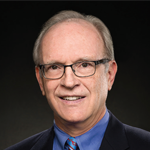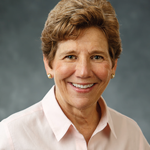
Chones / shutterstock.com
CHICAGO—At the 2018 ACR/ARHP Annual Meeting in October, the ACR and the ARHP honored a group of distinguished individuals who have made significant contributions to rheumatology research, education and patient care. This month, The Rheumatologist speaks with the winners of the ARHP Merit Awards about their individual contributions to advancing rheumatology. You’ll also find interviews with the Distinguished Fellow Award recipients.
ARHP MERIT AWARDS
ARHP Masters
Two distinguished members received the ARHP Master designation in 2018: Charles G. Helmick, MD, and Carol A. Oatis, PT, PhD.
 Dr. Helmick, a medical epidemiologist in the Arthritis Program for the Centers for Disease Control and Prevention (CDC) in Atlanta, was named a Master in 2018.
Dr. Helmick, a medical epidemiologist in the Arthritis Program for the Centers for Disease Control and Prevention (CDC) in Atlanta, was named a Master in 2018.
“The ARHP has provided a welcoming home for those of us working in public health and is our go-to meeting for the field of arthritis public health,” says Dr. Helmick. “All of us share a goal in treating the whole person in whatever ways work best.”
When his effort to address aging-related problems got little traction at the CDC in the early 1990s, Dr. Helmick switched his focus to the most “sellable” of those public health problems—arthritis. Working with the ARHP and its former president, Teresa Brady, along with the ACR, Arthritis Foundation and other partners, he helped develop the National Arthritis Action Plan—A Public Health Strategy, published in 1999. This document provided support for Congress’ first funding for the CDC’s Arthritis Program that same year.
Since then, the program has provided measures on all levels—national, state and county—regarding the public health impact of arthritis and other rheumatic conditions. Likewise, it has developed and promoted evidence-based, but underused, interventions, such as self-management education and physical activity. These community interventions in 12 CDC-funded state health departments have reached more than 200,000 adults over the past six years.
Dr. Helmick earned his medical degree from Johns Hopkins School of Medicine in 1976. After training in internal medicine between 1976 and 1979 at Baltimore City Hospital, he joined the Epidemic Intelligence Service in 1979—the CDC’s disease detective training program—where he worked on exotic infectious diseases in international settings before switching his focus to chronic diseases as the bigger health problems.
From 1997 to 2009, he learned about rheumatic diseases firsthand while working part time in the Atlanta VA Rheumatology Clinic. In 2009, he retired as a captain in the U.S. Public Health Service, but still works today as a civil servant in the CDC Arthritis Program.
An ARHP member since the mid-1990s, Dr. Helmick is a long-time contributor to Arthritis Care & Research and has served on the journal’s Editorial Board. Over the years, he has worked with other members to build ARHP’s reputation as the national home for public health science and intervention activities that address arthritis and other rheumatic conditions.
“The ARHP is the perfect place to work on bridging the clinical-community gap in health and to achieve what we all want: better health and quality of life for people affected by arthritis and other rheumatic conditions,” he says.
 Dr. Oatis is a professor in the Department of Physical Therapy at Arcadia University, Glenside, Pa. “The ARHP introduced me to extraordinary researchers, leaders and other health professionals who were leaders in rheumatology care and research,” she says. “These people became my mentors and supporters, and really paved the way for me into ARHP leadership.”
Dr. Oatis is a professor in the Department of Physical Therapy at Arcadia University, Glenside, Pa. “The ARHP introduced me to extraordinary researchers, leaders and other health professionals who were leaders in rheumatology care and research,” she says. “These people became my mentors and supporters, and really paved the way for me into ARHP leadership.”
As past president of the ARHP, Dr. Oatis is an active researcher whose projects have crossed disciplines, ranging from basic biomechanics and health services research to physical therapy (PT) practice patterns.
Currently, she is collaborating with Patricia D. Franklin, MD, MBA, MPH, professor of orthopedics and physical rehabilitation at the University of Massachusetts Medical School, Worcester, on a project that examines and assesses the effects of PT practice variation in patients following total knee replacement surgery.
For the past 40 years, Dr. Oatis has taught kinesiology and biomechanics to physical therapy students at two Pennsylvania universities. While completing her PhD at the University of Pennsylvania, Philadelphia, she also served on its faculty during the late 1970s. After the university closed its PT program, she taught PT part time at Arcadia University, Glenside. Around the same time, she and her former university colleagues also formed a PT practice. After 14 years, that practice closed, and Dr. Oatis became a full-time professor at Arcadia in 1991.
While teaching and delivering patient care, she has focused on musculoskeletal conditions, including arthritis, mainly due to her interest in biomechanics and functional anatomy or kinesiology.
During her academic career, she has supervised independent student research and mentored dozens of students. At least 40 have participated in rheumatology-related research. Some even accompanied her to ACR/ARHP Annual Meetings to present their findings and are now practicing clinicians, researchers and scholars. She believes their exposure to the ARHP provided them with a broader perspective on rheumatology and interprofessional care.
As an active member of the ACR/ARHP for more than 25 years, Dr. Oatis has served on committees and review panels and led the ARHP as its president in 2005.
This year, she reduced her academic workload. While still mentoring students, she now teaches PT part time so she can focus more on research.
“In the coming years, I’ll continue my research looking at PT practice and its effects on outcomes with people with total knee replacements,” Dr. Oatis says. “Hopefully, our team’s work will contribute to a description of best practice for PT following total knee replacement and for patients with arthritis in general.”



